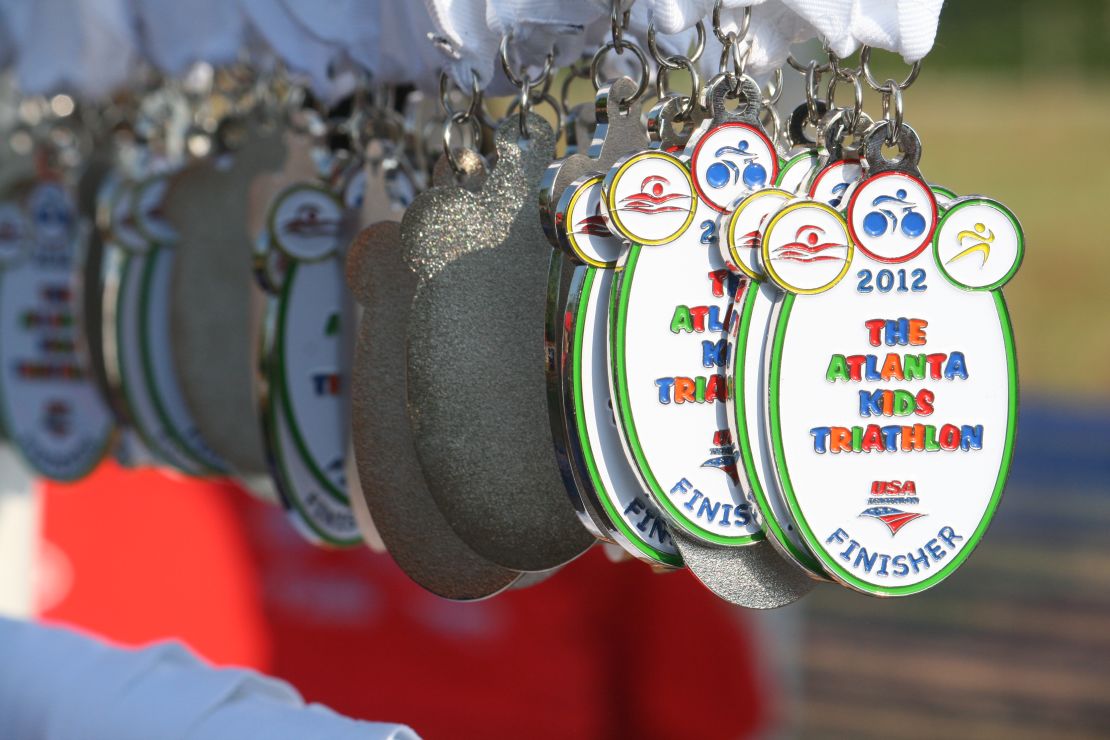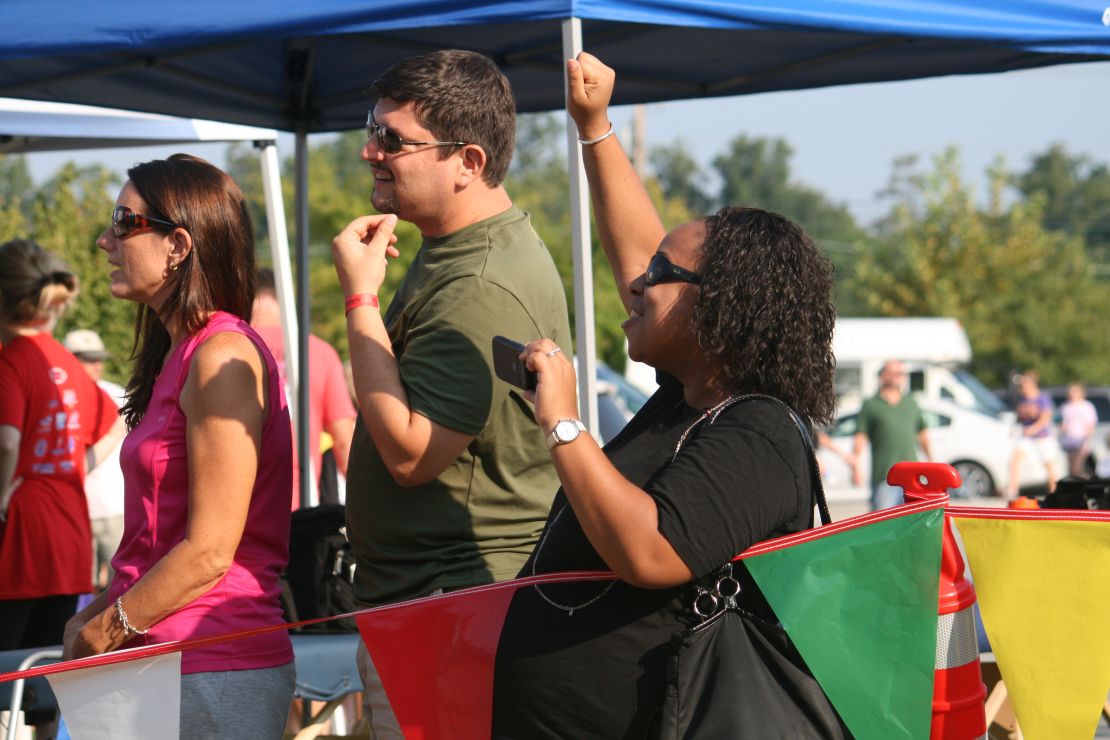Story highlights
Kids Triathlon Inc. holds races in six U.S. cities and hopes to expand
Children ages 5 to 10 swim 100 yards, bike three miles and run half a mile
The organization partners with local YMCA and NFL teams to promote an active lifestyle
The training wheels came off two weeks before the race. They had to, or 5-year-old Jonah Jennings couldn’t compete in the triathlon.
The first day without them, she cried – big plopping tears of fear. By the second, she was ready for her new two-wheel bike.
Jonah was one of more than 800 kids who participated in the first Atlanta Kids Triathlon in Norcross, Georgia, on Sunday. The juniors, ages 5 to 10, swam 100 yards, biked three miles and ran a half a mile; the seniors, ages 11 to 15, swam 200 yards, biked six miles and ran a mile.
“I think it’s a big deal for anybody,” said Blanche Payne, wellness director at Andrew & Walter Young YMCA and one of the coaches for Jonah’s 30-kid triathlon team. “When you say to someone, ‘I want you to swim, bike and run in one event,’ adults’ eyes glass over. When you say that to a kid, they’re like ‘OK. …’”
Schools given $25,000 to help kids move
Kids Triathlon Inc. started almost by mistake four years ago in Jacksonville, Florida, said event director Tom Gildersleeve.
His wife is a physical therapist who saw a lot of teens getting burned out on their favorite team sport. She worried about kids becoming inactive when they didn’t end up playing professionally.
“That led us to triathlon,” Gildersleeve said. “That’s a sport that just supports lifelong activity. People who are 80 can still do triathlons.”

The organization’s first race was held in Jacksonville with 400 kids. In 2012, Kids Triathlon spread to five other cities. In each, the group tries to partner with an NFL team as part of NFL Play 60 – the football league’s campaign to get kids moving for 60 minutes a day.
“Today we hear constantly about kids not being active,” said Joshua Kraft, director of strategic partnerships for the New England Patriots. “What better way than swimming, biking and running? A kid doesn’t have to be a superstar to participate.”
Why it’s so hard for kids to lose weight
Cheerleaders for the Atlanta Falcons and mascot Freddie revved kids up Sunday as they gathered in a sea of yellow swim caps to the sounds of singer Carly Rae Jepsen’s “Call Me Maybe.”
“It’s a bit like herding cats, isn’t it?” a harried volunteer muttered as she tried to line the kids up by race number.
It was easy to identify the mini pros – kids whose parents had obviously spent hundreds of dollars on triathlon equipment. Yet beside the fancy road bikes were ones with pink and purple streamers; Hello Kitty helmets lay next to ones shaped like dinosaur heads.
Each kid on Jonah’s team was the first in his or her family to complete a triathlon. But as the junior group prepared to jump into the pool, Jonah and her friend Lincoln Fletcher were more interested in their loose baby teeth than being nervous.
“See? It’s ready to come out,” Jonah said as she wiggled it with her pointed finger.

The Andrew & Walter Young YMCA team spent seven weeks training. Three days a week, the group gathered to swim and either bike, run or practice transitions. Then, on Saturdays from 8 to 11 a.m., they did all three.
“Most could not complete it when we started,” Payne said with a laugh. “Huffing and puffing, they’d look at me like, ‘You’re kidding.’ ”
‘The Beast’ races to lose 100 pounds
Scholarships were awarded to those who couldn’t afford the registration fee, and some of the team’s triathlon equipment was donated, including Jonah’s new bike.
“I want her to be competitive in life, quite honestly – not be afraid to compete,” said Jonah’s mother, LeRoya Jennings, as she eagerly waited for her daughter to round the last corner on the bike path. Twenty minutes later, Jonah ran across the finish line to receive her medal with a big grin.
“It was long!” she exclaimed, gulping down water. She said she wants to do another race soon, maybe with her dad next time.
Gildersleeve said he hopes the events are making a long-term impact on the communities where they’re held. He said that research shows kids average an extra 19 hours of exercise a month in the lead-up to the races.
“If we can get a family to adopt that lifestyle, that’s a priority for us,” he said. “They can learn that being active and healthy is fun.”






















